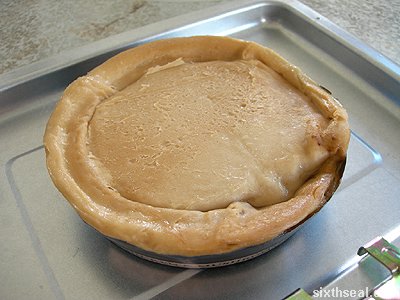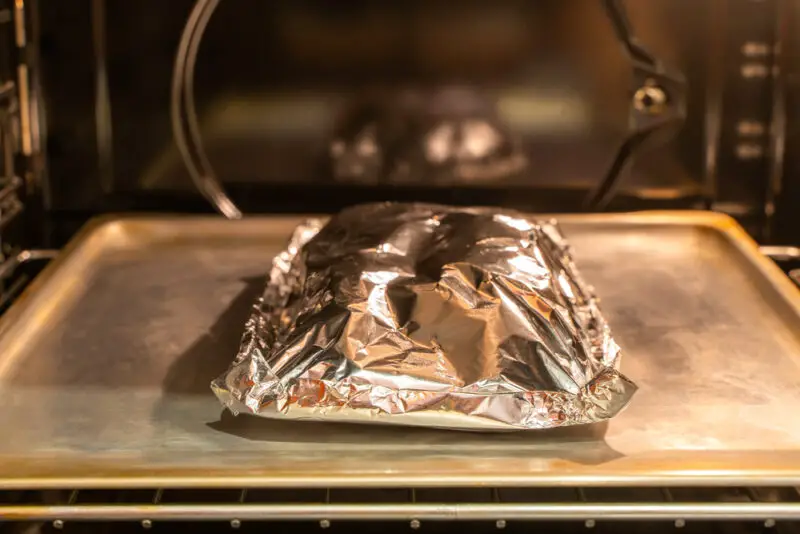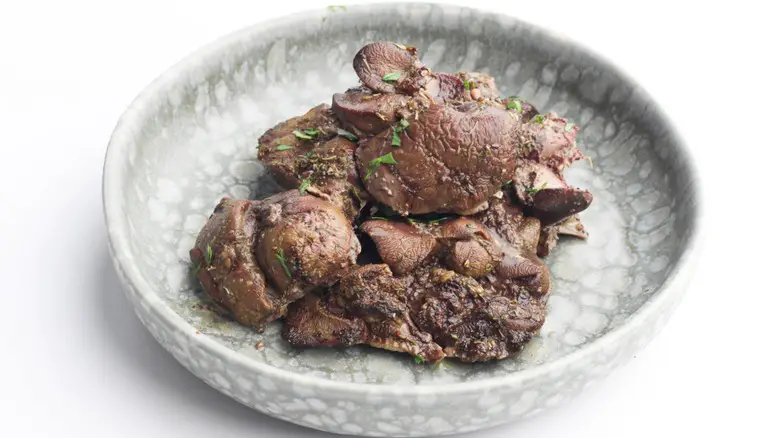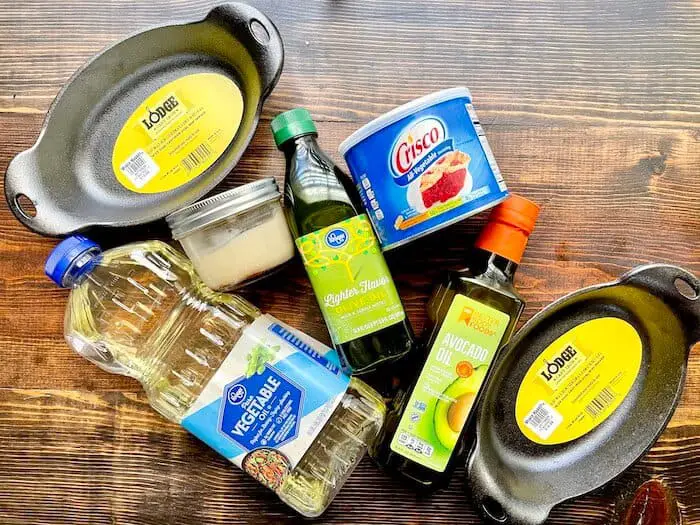Can You Freeze Cooked Halloumi Cheese: A Comprehensive Guide
Introduction
Halloumi cheese has been widely popular for its elastic texture and salty taste. It has become a staple in many cuisines, especially the Mediterranean. Halloumi cheese is used in several dishes like salads, sandwiches, pastries, and more. However, there may be times when you have excess cooked halloumi cheese that needs to be stored for future use. This raises the question of whether it can be frozen or not. In this comprehensive guide, we will discuss everything you need to know about freezing cooked halloumi cheese.
What is Halloumi Cheese?
Halloumi cheese is an unripened brined cheese made from a mixture of goat and sheep milk. Originally from Cyprus, this cheese is now produced all over the world. It has a unique texture that allows it to retain its shape even after frying or grilling. It has a salty flavor with a slightly sour taste.
The nutritional value of halloumi cheese makes it a healthier choice than other cheeses. It is high in protein, calcium and contains fewer calories than many other varieties of cheese.
Why Freeze Cooked Halloumi Cheese?
Freezing cooked halloumi cheese is an excellent way to avoid waste by preserving excess amounts of cooked halloumi cheese for future use. It can be frozen when there are leftovers from salads, pastries, or sandwich fillings.
To get the most out of frozen halloumi cheese, it’s essential to follow proper freezing techniques and optimal storage conditions.
Tips for maximizing benefits of frozen cooked halloumi cheese:
- Cook small batches to prevent excessive leftovers.
- Cool before storing
- Ensure optimal packing
- Do not refreeze after thawing
Freezing Cooked Halloumi Cheese: The Dos and Don’ts
Proper packaging techniques are essential in maintaining the quality of cooked halloumi cheese after freezing.
Best Practices for Freezing Cooked Halloumi Cheese
- Wrap tightly in aluminum foil or plastic wrap to avoid air exposure
- Place in freezer-safe bags, heavy-duty foil or airtight containers
- To protect cheese quality, label the packaging with date and contents
- Keep frozen cooked halloumi cheese at around 0°F until ready to use
Procedures to Avoid when Freezing Cooked Halloumi Cheese:
- Avoid using unapproved storage containers like regular plastic bags, which allow air to penetrate easily.
- Don’t overstuff your freezer. This prevents circulation of cold air inside the freezer and can cause food to spoil more quickly because of inconsistent temperature.
- Avoid defrosting too many times. This can cause uneven texture and taste changes, reducing the overall quality of cooked halloumi cheese.
Safe Defrosting Techniques for Cooked Halloumi Cheese
Different ways of defrosting cooked halloumi cheese :
- Thawing at room temperature:
- Defrosting in the refrigerator:
- Microwave method:
This method involves placing the frozen cooked halloumi cheese on a kitchen counter to thaw at room temperature. This method is not recommended because it can result in growth of harmful bacteria such as Listeria that can lead to food-borne illness.
The best way to thaw cooked halloumi cheese is by using a refrigerator. This allows slow thawing and reduces the risk of bacterial contamination. Just place frozen cooked halloumi cheese in the fridge for 12-24 hours until fully thawed.
This quick defrosting method requires defrosting in microwaves that come with a defrost setting. Place frozen cooked halloumi cheese in an oven-safe dish and microwave it on defrost mode until thawed.
Recommendations for safe defrosting techniques to prevent foodborne illnesses:
- Thaw frozen cooked halloumi cheese in a covered container
- If thawing at room temperature, keep it on the bottom shelf away from other foods to prevent cross-contamination
- Do not re-freeze thawed cooked halloumi cheese to avoid contamination risks
The Effect of Freezing on the Texture and Flavor of Cooked Halloumi Cheese
Freezing cooked halloumi cheese affects taste and texture because of moisture loss, which causes changes in composition. The elastic texture may turn chewy or rubbery, while the taste may become bitter or degraded due to long-term freezing.
Changes in the texture of frozen and thawed cooked halloumi cheese particles:
- Crumbling during thawing –
- Chewiness and rubberiness changes after freezing –
After freezing, halloumi cheese tends to crumble when defrosting. To reduce crumbling, wrap it tightly before freezing and final storage.
Frozen halloumi cheese tends to become chewier and rubbery after defrosting because of moisture loss. However, the effects are minimal, and they don’t alter the quality of cooked halloumi cheese significantly.
Potential effects on taste after thawing :
- Bitterness after long-term freezing –
- Flavor degradation during storage –
If cooked halloumi cheese is frozen for too long, it may develop a bitter taste due to lipid oxidation that occurs during prolonged storage. The bitterness comes from a chemical compound known as butyric acid.
Cooked halloumi cheese can lose flavor over time due to dehydration caused by prolonged storage. The quality of halloumi cheese tends to decline even if packed correctly.
Ways to Use Frozen Cooked Halloumi Cheese
There are several ways to use frozen cooked halloumi cheese. It can be used in a variety of dishes such as salads, sandwiches, wraps, soups or stews, pastries, and more.
Different recipes that utilize frozen cooked halloumi cheese as an ingredient:
- Salads :
- Sandwiches and wraps :
- Grilled Halloumi skewers :
Add thawed and diced cooked halloumi cheese into fresh green salads for a new taste sensation.
Use thawed and sliced cooked halloumi cheese instead of regular cheese options like cheddar or mozzarella in your sandwiches or wraps for something new.
Thread frozen halloumi and vegetable pieces on a skewer, then grill them for a healthy snack.
Creative tips on how to use excess frozen cooked halloumi cheese:
- Grate and use as a topping for various pasta dishes
- Create a decadent pizza or quesadilla with grated thawed cooked halloumi cheese
- Add it to soups and stews for added flavor
Storing Cooked Halloumi Cheese without Freezing
If you do not want to freeze halloumi cheese, there are alternative storage options available. Vacuum sealing and refrigeration are two methods that can be used to maintain the integrity of halloumi cheese for extended periods.
Alternative storage options for cooked halloumi cheese:
- Vacuum-sealing
- Refrigeration –
A vacuum sealer is an effective tool that sucks out all the air from a packaging bag, reducing chances of oxidization. After packing in vacuum wrapper, place in refrigerator not room temperature.
Place leftover cooked halloumi cheese in an airtight container and refrigerate at or below 40°F until ready to use. It can be stored for 4-5 days without suffering quality loss.
The flavor may start to decline once it has been kept beyond one week.
Comparison of qualities between storing and freezing cooked halloumi cheese:
Frozen halloumi cheese lasts longer compared to storing in the fridge. However, frozen cooked halloumi cheese changes texture and taste slightly after defrosting.
Frequently Asked Questions about Freezing Cooked Halloumi Cheese
Can I refreeze thawed cooked halloumi cheese?
No, you should not refreeze thawed cooked halloumi cheese after defrosting to reduce the risk of contamination.
Can I freeze uncooked halloumi cheese?
Yes, you can freeze uncooked halloumi cheese for up to six months. For best results, wrap each piece in plastic wrap or aluminum foil and place in closed containers before freezing.
How long can you freeze cooked halloumi cheese?
Frozen cooked halloumi cheese can last for six months if stored correctly in an airtight container, freezer-safe bags or aluminum foil.
Conclusion
Freezing cooked halloumi cheese is an excellent way of avoiding wastage and storing excess for future use while ensuring optimal quality maintenance. However, it’s important to follow proper freezing techniques and storage conditions. Cooked halloumi cheese may change texture and taste to some degree after freezing and thawing. Nonetheless, you can still use it in various recipes to create delectable meals. Finally, vacuum-sealing and refrigeration are also two good alternative methods if you do not want to freeze cooked halloumi cheese.
1. Can cooked halloumi cheese be frozen?
Yes, cooked halloumi cheese can be frozen. However, it may change in texture and become slightly rubbery once thawed.
2. How do I freeze cooked halloumi cheese?
To freeze cooked halloumi cheese, wrap it tightly in plastic wrap or a freezer bag and place it in the freezer. It can be stored in the freezer for up to three months.
3. How should I thaw frozen cooked halloumi cheese?
The best way to defrost frozen cooked halloumi cheese is to let it thaw at room temperature for about an hour. Do not use a microwave or any heating devices as this could change the texture of the cheese.
4. Can I use frozen cooked halloumi cheese straight in recipes?
Frozen cooked halloumi cheese can be used in recipes once thawed, but keep in mind that its texture may have changed slightly. It’s still safe to consume, but you may want to consider using it in dishes where texture is less important, such as in casseroles or pizzas.






